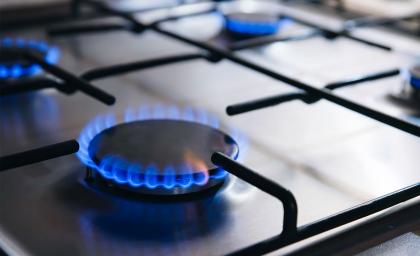Natural Gas: An American Treasure
When gas burns, it makes energy. That energy is heat. Natural gas is mostly made of three gases: methane, ethane, and propane. People have learned to use natural gas in many ways. Natural gas is great.
We use natural gas every day. When you turn on hot water, natural gas probably heated it. Just think about all the things people need to heat! Natural gas can help do that. Farms use gas-made fertilizer. So the farmers may have grown your food with that fertilizer. People even use natural gas in cars. Natural gas really is the most important resource under the ground. It is very special.
We also use natural gas to make electricity. We use coal, wind, the sun, water, and uranium to make electricity, too. But natural gas is cleaner. It does not pollute the as much. It is also cleaner for factories and cars.
Geologists are scientists who study what the earth is made of. The search for natural gas begins with geologists. They know a lot about rocks. They know which rocks usually have gas under them. They look for those rocks so that they can begin drilling. This is like a science project. The scientists start with a guess, a hypothesis. They think they will find gas under the ground. The next step is a search. The explorers use a drill to dig deep in the ground. If they find gas, then the explorers drill deep holes and use pipes to get the gas from under the ground.
Natural gas is found in many places. It is deep beneath the surface of the earth. It is also beneath the floors of the oceans. You won’t get to it if you dig a little hole. It is far down under ground. You will not find it even with a very deep hole in Chicago. It is far under the ground in other parts of this country. It is also in other countries.
How does natural gas get to people who need it? A pipeline takes the gas to them. It travels hundreds of miles. A pipeline is a set of joined pipes. It has many parts. Each part is a pipe connected to other pipes. There are more than a million miles of natural gas pipelines in the United States today. Every 50 to 100 miles along those pipelines there are stations that push the gas along. They are called compressor stations. The gas travels about 35 miles an hour. It takes a lot of work to get natural gas to homes and businesses. But it is a great resource. So it’s worth all that work.
